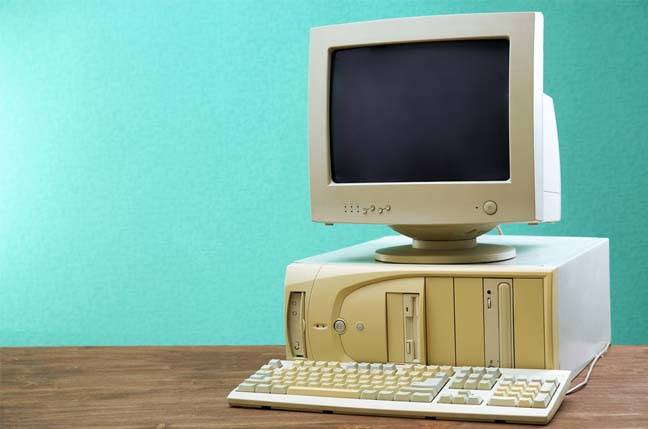Sweating The Assets: Techies Hold Onto PCs, Phones For Longer Than Ever

Businesses are likely to sweat device assets for longer this year as they spend conservatively in a weakening economy, and this along with shrinking demand from consumers is leaving manufacturers in a tight spot.
Gartner forecasts a perfect storm with fortunes declining for shipments of PCs, tablets and mobile phones 4.4 percent year-on-year in 2023 to 1.74 billion units.
If accurate, that's just slightly more than 287 million computers, down 6.8 percent, some 2.9 percent fewer tablets to almost 133 million and 1.339 billion phones, down 4 percent.
This is against a backdrop of a 36 percent revenue decline for Intel's PC division, as reported late last week, and Microsoft reporting a 39 percent plunge in Windows-related license revenues paid by PC makers. These figures will be based on revenues for products that will already be sat in warehouses of distributors and retailers.
"They are effectively forward looking views on the world," Ranjit Atwal, senior director analyst at Gartner, told The Reg. "That's what they've sold tomorrow or into next quarter. That tells you everything about the rationalization that's going on."
PC shipments grew rapidly during the early years of the pandemic, peaking at almost 350 million units in 2021. Reality came crashing in last year when sales into the channel dropped 16.2 percent to 286.2 million – the steepest decline on record.
- Samsung profits and revenue slump, hoping for a jump start from cars
- As wafer demand dries up, foundry revenues head for a cliff, we all celebrate
- What goes up must come down: Logitech sales tumble amid PC slump
- PC sales slump to pre-pandemic level in Q4. 'Boom' is over, says IDC
"What you're seeing is the result of accumulation of overoptimism off the back of the COVID years. Coming into 2022, because there was a shortage of inventory, vendors estimated bigger pipelines," Atwal said.
"A few things happened as we came through the year: demand dropped off, industry was left with huge inventory. The invasion of Ukraine depressed consumer confidence, and then you have interest rate rises and inflation."
Atwal anticipates businesses will be cautious in how they spend, and thinks lifecycles on PCs will be elongated. "Businesses will sweat this year but they can't indefinitely sweat. Over the last year lifetimes have gone up by six to nine months as consumers and business have held on. And as people have held on, demand dipped, and that is where we've got this inventory coming."
Typically, in the pre-pandemic days, distributors held around four weeks' worth of stock but, in some instances, this is closer to 60 days now, the Gartner man estimated.
This is not the case for Lenovo, according to Marco Andresen, global chief operating officer for the company's Intelligent Devices Group. "We are in general at pre-pandemic levels of inventory (in terms of weeks or days)," he told The Register.
"This applies more or less to all our geographies with some local variances. We are coming from a couple of years where inventory was very low so it's true that inventory did grow but the levels are not in any way extreme (we think some of our competitors however have richer inventory than us which impacts everyone). Clearly when the channel is rich the price pressure increase."
Atwal said smartphones were suffering from the same malaise as PCs: no compelling need to fresh. Tablets, he said, were lower-ticket items and so expected a slower decline. ®
From Chip War To Cloud War: The Next Frontier In Global Tech Competition
The global chip war, characterized by intense competition among nations and corporations for supremacy in semiconductor ... Read more
The High Stakes Of Tech Regulation: Security Risks And Market Dynamics
The influence of tech giants in the global economy continues to grow, raising crucial questions about how to balance sec... Read more
The Tyranny Of Instagram Interiors: Why It's Time To Break Free From Algorithm-Driven Aesthetics
Instagram has become a dominant force in shaping interior design trends, offering a seemingly endless stream of inspirat... Read more
The Data Crunch In AI: Strategies For Sustainability
Exploring solutions to the imminent exhaustion of internet data for AI training.As the artificial intelligence (AI) indu... Read more
Google Abandons Four-Year Effort To Remove Cookies From Chrome Browser
After four years of dedicated effort, Google has decided to abandon its plan to remove third-party cookies from its Chro... Read more
LinkedIn Embraces AI And Gamification To Drive User Engagement And Revenue
In an effort to tackle slowing revenue growth and enhance user engagement, LinkedIn is turning to artificial intelligenc... Read more

